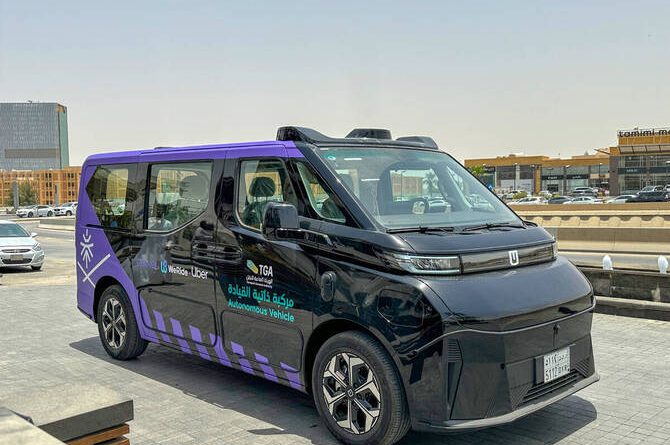Riyadh Accelerates Autonomous Transportation with Self-Driving Cars
Riyadh – Riyadh is embracing the future of mobility as more than 1,000 commuters have already experienced self-driving car journeys since the pilot program launched in July. The initiative represents a major step toward smarter, safer, and more sustainable urban transportation in the Saudi capital.
The pilot service began at Roshn Front shopping mall and Princess Noura University, allowing residents and students to explore autonomous vehicle technology in real-world settings. Participants have been able to request rides through the Uber application, making the service accessible and user-friendly.
A partnership between the Transport General Authority, Uber, and WeRide drives the program, combining technological expertise, operational efficiency, and regulatory oversight. The collaboration ensures that vehicles operate safely while providing a seamless commuting experience for passengers.
The pilot phase has been closely monitored by safety officers deployed in every vehicle. These professionals oversee technical performance, maintain high standards, and ensure the autonomous systems function reliably, giving riders confidence in the new technology.
Plans are already underway to expand the program, with more routes and an increased fleet expected to reach over 20 autonomous vehicles by the end of the year. This growth reflects Riyadh’s commitment to innovation and readiness to adopt next-generation transportation solutions.
Government support plays a key role in the project’s success. The Ministry of Interior, Ministry of Communications and Information Technology, Saudi Data and Artificial Intelligence Authority, General Authority for Survey and Geospatial Information, and the Saudi Standards, Metrology and Quality Organization are all actively involved in the program.
The initiative aligns with Saudi Vision 2030, which emphasizes technology-driven infrastructure and sustainable urban development. By integrating autonomous vehicles into the city’s transport network, Riyadh is taking important steps toward reducing congestion and improving mobility efficiency.
In addition to passenger transport, the program has expanded to include autonomous food deliveries. A partnership between Roshn Group and delivery app Jahez allows for faster, more efficient service while reducing carbon emissions. The delivery project demonstrates the versatile potential of autonomous technology across multiple sectors.
The technology behind the vehicles ensures precision navigation and safety in busy urban environments. By leveraging advanced sensors, artificial intelligence, and real-time monitoring, the self-driving cars can operate reliably even in complex traffic conditions, providing a safe and convenient commuting option.
Commuters participating in the pilot have expressed excitement about the experience, noting the convenience, comfort, and novelty of riding in autonomous vehicles. The program also serves an educational purpose, familiarizing the public with emerging technologies and building trust in automated systems.
Expanding the fleet and increasing the number of routes will enhance accessibility for Riyadh residents. More neighborhoods, commercial centers, and educational institutions are expected to benefit from the service, supporting inclusive mobility across the city.
The initiative contributes to Riyadh’s sustainability goals by promoting low-emission transportation options. Autonomous vehicles, when combined with electric or hybrid technology, can significantly reduce the city’s environmental footprint, aligning with broader national efforts to protect the environment.
Overall, the self-driving car program reflects Riyadh’s ambition to become a regional leader in smart mobility. It demonstrates how innovative technology, strategic planning, and government support can transform urban transport and improve quality of life for residents.
With continued expansion, safety measures, and integration with existing transport infrastructure, Riyadh’s autonomous vehicle initiative is set to become a model for modern, sustainable urban mobility in the Middle East and beyond.



